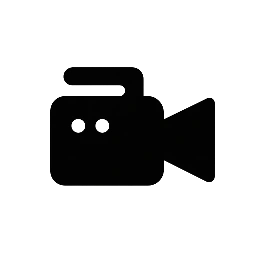1. Micro‑ & Nano‑Influencers Take Center Stage
By 2025, more brands are partnering with micro (10K–100K followers) and nano (<10K) influencers to deliver hyper-targeted, authentic campaigns. These creators drive higher engagement and 30% better ROI compared to celebrity endorsements Sprout Social+10Reddit+10Agility PR Solutions+10.
2. AI-Powered Campaigns
AI integration continues to accelerate:
- 66% of marketers report improved campaign outcomes with AI Influencer Marketing Hub.
- TikTok is piloting AI-generated “influencer-style” avatars for product promotion Sprout Social+6The Verge+6Wall Street Journal+6.
- Large brands like Unilever are using AI to scale content creation and even virtual influencers Aspire+12Wall Street Journal+12arXiv+12.
3. Omnichannel Storytelling
Influencers are expanding beyond a single platform. Forbes identifies this as an essential strategy—seamlessly delivering content across TikTok, Instagram, YouTube, LinkedIn, and native commerce channels Forbes+1Forbes+1.
4. Influencer-Led Product Innovation
Brands are co-creating products with influencers. Examples include fitness lines with creators like Whitney Simmons, delivering both product and story together Agility PR Solutions.
5. Long-Term & Community-Centric Collaborations
Rather than one-off ads, marketers are focusing on sustained partnerships and community activations, valuing authenticity and brand alignment .
6. Affiliate & Social Commerce UV
Affiliate-driven content is booming: creators using affiliate links earn 71% more revenue year-over-year Aspire. Live shopping remains central, with TikTok and Instagram leading the charge Vogue Business+15Influencer Marketing Hub+15nypost.com+15.
7. Regulatory & Ethical Frameworks
Stricter rules on transparency are in place—FTC bans on AI-fabricated reviews and EU disclosure mandates are reshaping influencer behavior The Verge+4Wikipedia+4arXiv+4.
8. Platform Diversification Amid TikTok Uncertainty
TikTok budget intentions have dropped 17% due to potential US restrictions Influencer Marketing Hub. Brands are diversifying onto platforms like LinkedIn (video resurgence), Instagram, and YouTube.


Market Snapshot
However, budget allocations are tightening: ROI measurement and strategic spend are now top priorities Influencer Marketing Hub+1Vogue Business+1.
The global influencer marketing industry is projected to reach $32.6B in 2025, with growth over 35% YoY Influencer Marketing Hub+1Sprout Social+1.
59% of marketers plan to increase influencer partnerships this year Marketing Dive.
76% of C‑suite executives anticipate growing budgets for influencer programs DEPT®+1Vogue Business+1.
Wrapping Up with Key Insights
Influencer marketing in 2025 is about balance—merging AI efficiency with human authenticity, broad reach with niche precision, and short-term buzz with long-term relationships. Brands that master this blend will stand out in a hyper-competitive landscape.


Leave a Reply